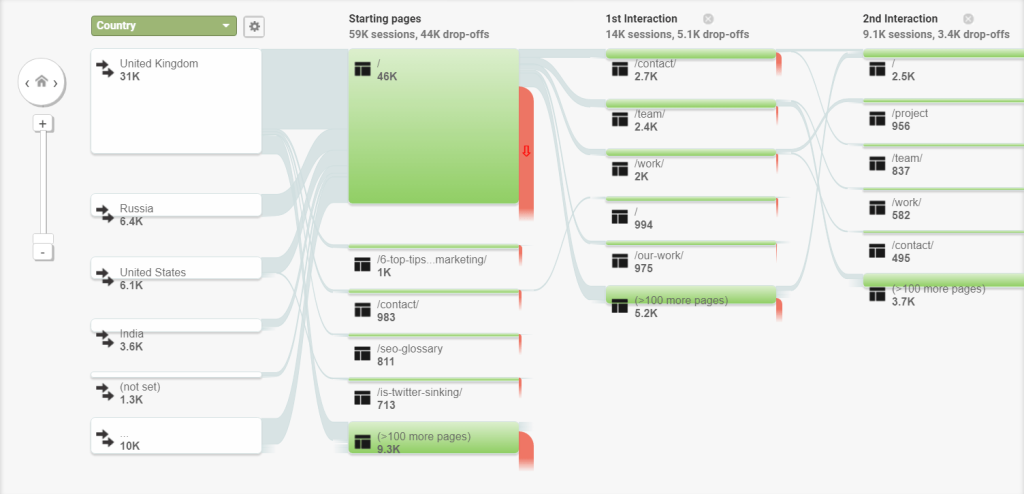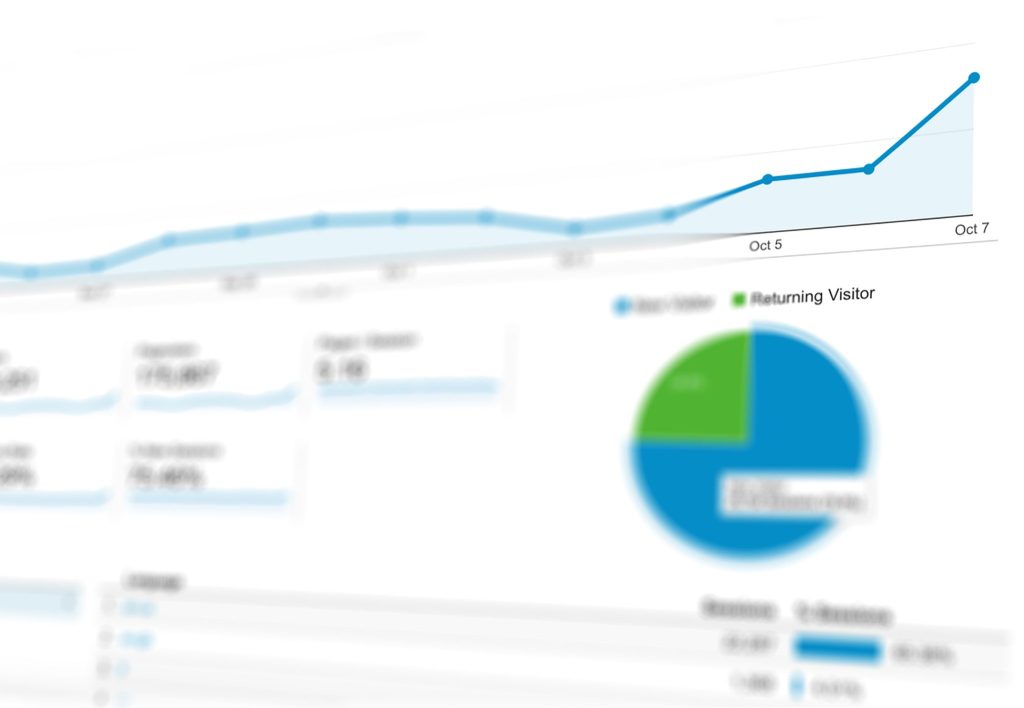Does Google take into account how people interact with your site when deciding to rank your website in their search results? A subject somewhat shrouded in mystery and confusing literature – leaving people unsure as to whether user and usage data is a ranking factor for SEO. Regardless of whether you read the evidence we have gathered below, along with some more speculative theories…improving user experience and flow through your website should be important to you regardless of whether or not it has an effect on SEO. Concentrating on the user will only provide a higher converting website which would be tough to argue against!
Right so what are the two sides of the argument?
Why Google takes user and usage metrics into account for SEO:
Google Analytics
Google Analytics is the go-to analytics platform for websites, capturing user and usage data on countless websites across the globe. Who owns Google Analytics? That’s a rhetorical question.
The argument is: why wouldn’t the Big G use all of this data in their algorithm? It would help them to better understand which websites were fulfilling the user intent and therefore place them in a better position within the SERPs.
Users First
Google are very clear in their desire to put the user first. That’s how they make all of their money, by providing the very best result for each individual given search term. If they are so hell bent on putting the user first they would be very interested in user and usage data. Tie this in with Google Analytics and they are sitting on a gold mine of data.
Why Google DOESN’T take user and usage metrics into account for SEO:
A Majority is NOT 100%
This is a topic that came up when SEOs were debating whether social metrics were influencing search rankings, substantially fuelled by studies that indicated that strong social metrics were correlated with strong SEO rankings.
In 2012, the then head of Google Webspam, Matt Cutts announced in this video that Google (as far as he was aware) did not take into account social metrics in their search algorithm. The main reasons being that they did not have 100% guaranteed access to all of the pages on the major social media platforms. The fact that there was an apparent correlation between social and SEO metrics was more of a ‘correlation not causation’. It was likely that great content that was popular on Facebook was also popular on the web and earning links.
How does this relate to user and usage metrics?
A majority does not necessarily mean 100%. Yes, a LOT of websites on the web will have Google Analytics linked to the site but not all of them will. Google makes an astronomical amount of money through PPC – they can do this because their search algorithm is the best at providing the most valuable and relevant result for a given search term. As such, why would they risk the quality of their results on a non complete data set?
It stands to reason that Google would only want to base the development of a ranking factor on being able to see as complete a data set as possible. Once a user is on a website without Google Analytics, Google would not be able to effectively track that user’s activity on the site.
John Mueller backs up this theory
More recently than Matt Cutts’ video, in 2015 John Mueller specifically said in a Google Hangout that he doesn’t “think we even see what people are doing on your website”. Sounds pretty clear cut to us. He then goes on to say that if Google are unable to see those specific metrics then that is not something that they would “take into account” when ranking a website.
Google already looks at user experience
Over the years Google has released multiple updates that increase its ability to identify good and bad user experience on websites; some examples of this would be Panda, Page Layout and Hummingbird. In fact, if you really look at the majority of the updates, user experience is one of the top (if not the top) priority at the core of these updates.
As such, Google is already pretty hot on user experience which is another way of saying that they take into account factors that will impact user and usage data. So why would they want to use an incomplete data set (via Google Analytics) when they can simply crawl websites and work it out for themselves?
Ultimately it doesn’t matter what the answer is.
What? So why are you still reading? If you are looking at SEO from a holistic point of view, providing a great user experience, converting visitors into customers and increasing the key user and usage data to satisfy the goals of your website are all factors that are important regardless of whether Google takes them into account in their algorithm or not.
Let’s take ‘Pogo Sticking’ or Bounce Rates as an example. This is the theory that Google will see when a user clicks on a result but then bounces within a set period of time and clicks on another result. We are pretty confident that this is a metric that is used by Google. However, even if it is not used by Google it is a problem for Webmasters.
Those users that are pogo sticking or bouncing off your site are quite clearly dissatisfied with what your web page is offering. Maybe you are targeting the wrong search term or critical information is too low down on the page. The point is that this should be really important to you regardless of whether it affects your ability to rank.
Whilst not trying to oversimplify SEO, we always say that if you focus on value to the user it is a pretty good starting place!
Yellowball is a London Based SEO & Web Design Agency!









